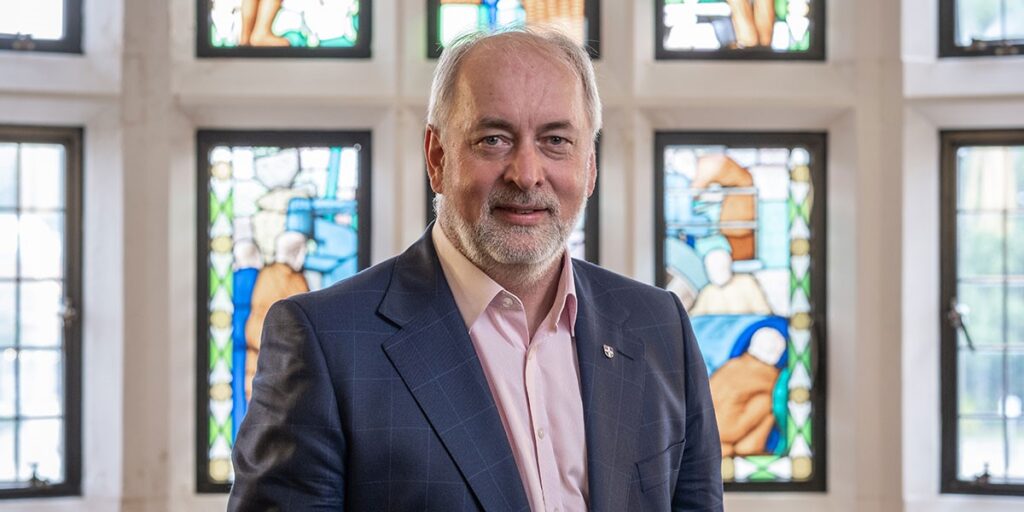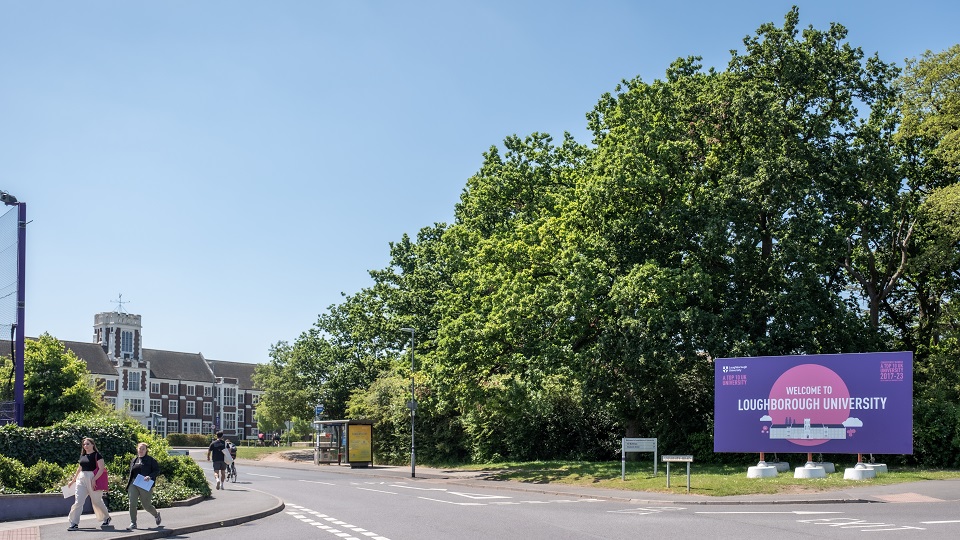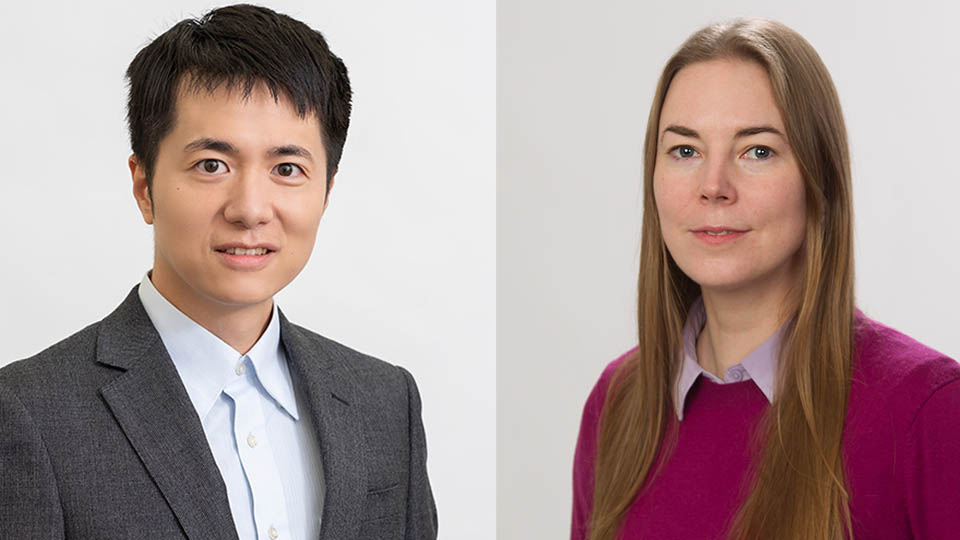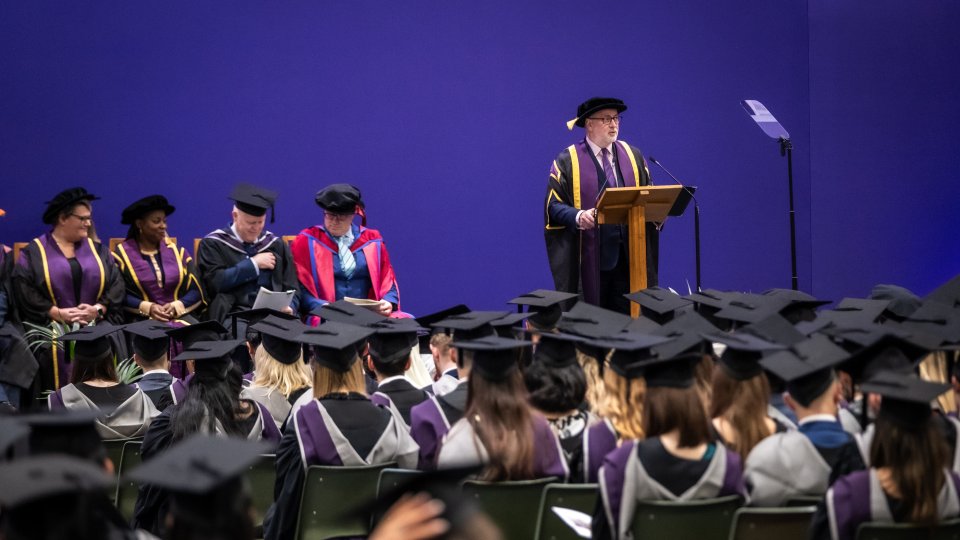From the Vice-Chancellor – December 2023

In my last newsletter of 2023: the QS Sustainability rankings, Loughborough at COP28, investment from the East Midlands Freeport, staff named as UKRI Future Leaders Fellows, our winter degree ceremonies, and a look back at the year.

Loughborough leaps into the global top 100 in QS Sustainability rankings
With our commitment through the Climate Change and Net Zero strategic theme to put sustainability and social change at the heart of our activities, I was pleased to see Loughborough enter the top 100 universities in the world in the 2024 QS World University Sustainability Rankings, published this month.
Loughborough climbed almost 200 places from its 2023 ranking, rising to 64th out of 1,403 institutions worldwide.
The QS rankings assess three metrics – environmental impact, social impact and governance – to provide an insight into which institutions are demonstrating a commitment to a more sustainable existence. They take into consideration our research and innovation, as well as the way we manage our campus, buildings and operations. Our results in the rankings are testament to the work that many colleagues across the University are undertaking to tackle global climate challenges and improve the lives of those most in need.
For example, our Centre for Sustainable Transitions: Energy, Environment and Resilience (STEER) is helping support vulnerable populations in the Global South to shape and benefit from the transition to sustainable energy. One of the Centre’s objectives is to work with partners across the world to make the United Nations’ Sustainable Development Goal (SDG) 7 a reality.
Academics from Engineering have developed Aftrak, an accessible, economic solution to energy access in sub-Saharan Africa. This deploys green solar microgrids in communities, allowing energy access for all, alongside solar micro tractors that help farmers significantly increase crop yields and revenue.
And the University’s Centre for Research in Social Policy (CRSP) plays a crucial part in influencing national policy around poverty, living standards and income adequacy. One of its biggest roles is the research and analysis of a Minimum Income Standard (MIS) for the UK, used to set the country’s Living Wage, which is now being replicated in other countries.
In terms of our campus management, the fourth pavilion of SportPark on the Loughborough University Science and Enterprise Park (LUSEP) is our first Passivhaus development, widely regarded as one of the most challenging energy efficiency and comfort standards in the world.
To ensure sustainability is at the core of University operations, we have set an ambitious goal to be net zero by 2035 for its Scope 1 and 2 emissions and by 2050 for its Scope 3 emissions. The three Scopes are a way of categorising the different types of greenhouse gas emissions that are created either directly by the University or indirectly by our suppliers or the services we use.
Loughborough takes part in COP28
Each year, world leaders and some of the most influential people from businesses and organisations around the globe come together for the United Nations Climate Change Conference, known as COP, to agree on ways to address the climate crisis.
Among the estimated 70,000 delegates taking part in this year’s event, held in Dubai from 30th November to 12th December, were a number of researchers from Loughborough, who showcased the climate-related projects they’re undertaking.
Representatives from the Loughborough-led Modern Energy Cooking Services (MECS) programme took part in a number of events, including the launch of the Global Electric Cooking Coalition (GeCCo). The coalition’s target is to support a mass transition to electric cooking in at least 10 countries from Sub-Saharan Africa, Asia, and Latin America over the next seven years.
Carla Cannone from the Department of Geography and Environment presented her paper on the importance of collaborative effort in tackling the challenges of climate change and energy planning in low to idle income countries. Carla’s paper is part of her work for the Loughborough-led Climate Compatible Growth initiative.
And Jennifer Dranttel from the School of Design and Creative Arts showcased her research on the creation and use of innovative materials to address Mongolia’s air pollution problems caused by global climate change.
Also among those attending COP was the University’s newly appointed Ambassador for the Climate Change and Net Zero theme, Steve Varley. Loughborough alumnus Steve is a Global Senior Advisor for EY and served as a lay member of the University Council from 2014 to 2023.
In his role as Ambassador, Steve will work closely with the theme’s Associate Pro Vice-Chancellors, Professor John Downey and Dr Kathryn North, to be an advocate for the University, helping to raise our reputation and profile through his networks. Steve’s insight and connections will help to position the University on the biggest stages and enable us to work with world leaders and global companies.
Through opportunities such as these, our research and innovation, and the partnerships we develop, which align with our strategic theme of Climate Change and Net Zero, we have a real opportunity to make a tangible, positive difference.
Major investment will help to address the climate challenge
This month it was announced that Loughborough and the University of Nottingham would together receive more than £5 million from East Midlands Freeport to help accelerate the translation of zero carbon research into high-impact innovations with commercial and policy solutions to meet the climate challenge – another major development in our Climate Change and Net Zero objectives.
The investment, match-funded by Loughborough and Nottingham, has been pledged to the first phase of a zero carbon innovation centre to be led by the University of Nottingham and based at its Jubilee Campus and Loughborough University Science and Enterprise Park (LUSEP). The centre will consolidate the East Midlands’ position as a world leader in the development and deployment of innovation in green industries, attracting international investment and providing support for global businesses.
As part of the project’s first phase, anticipated to commence in Spring 2024, construction will begin on the LUSEP-based green hydrogen production, testing and training facility, where a new battery-electrolyser will be installed, with plans to couple this to a solar PV array to generate Green Hydrogen.
The battery-electrolyser facility, underpinned by novel Loughborough University intellectual property, is an important milestone in the development on LUSEP of The Hydrogen Works Innovation Facility which will provide flexible facilities for research, innovation, incubation and scale up activities, and adoption and testing of transformative hydrogen technology.

Staff receive prestigious UKRI Future Leaders Fellowships
Many congratulations to Dr Haitao He from the School of Architecture, Building and Civil Engineering, and Dr Naëmi Leo, who is set to join the School of Science, on being awarded funding through the prestigious UK Research and Innovation (UKRI) Future Leaders Fellows initiative.
UKRI’s Future Leaders Fellowships scheme aims to develop the next wave of world-class research and innovation leaders in academia and business. Fellows are given long-term support and training to explore adventurous new ideas and commercialise their innovations that tackle major global issues.
The Fellowship will support Haitao’s research into the use of emerging digital technologies and AI to develop new people-centric approaches to the challenges currently facing the transport sector, such as congestion, emissions and the need for better accessibility.
Naëmi’s Fellowship project, LIONESS (Light-controlled nanomagnetic and spintronic applications via magneto-thermoplasmonics), will enable her to undertake interdisciplinary work combining the fields of optics, magnetism and computing.

Celebrating success at our graduation ceremonies
On Thursday and Friday last week, more than 1,500 Loughborough students, their friends, family and supporters gathered on campus for the winter graduation ceremonies. It was wonderful to see so many proud, happy faces as they celebrated the students’ achievements.
At the congregations we also awarded honorary degrees to six people in recognition of their outstanding contributions in their respective fields.
On the first day we recognised world record-breaking mountaineer and Loughborough alumnus Nirmal ‘Nims’ Purja MBE; Diane-Louise Jordan, who was the first Black presenter of the BBC’s Blue Peter programme and is a passionate advocate for inclusivity and equal opportunities; Loughborough alumna Mary Earps, who is the goalkeeper for the European Cup-winning Lionesses; and the award-winning poet, dance artist and choreographer, Helen Calcutt.
On the second day of ceremonies, we awarded honorary degrees to Dr Rebecca Heaton, the Director of Environmental Sustainability for Lloyds Banking Group, for her work in helping large organisations develop their environmental strategies; and recognised the work of the world-famous mathematical physicist, Sir Michael Berry.
The graduation ceremonies are always a wonderful opportunity for us to reflect on our students’ success and to wish them all the very best as they embark on the next phase in their lives as Loughborough alumni. I know teams right across the University work very hard to ensure that everyone who attends has an enjoyable day. Thank you to you all for everything you do.
End of another successful year
As the year comes to a close, I want to thank you for everything that you have contributed to the University’s success over the last 12 months. It has been another busy year, and we have made great progress against the aims and themes of our University strategy, just some of which are highlighted in our end of year video.
Whatever you are doing while the University is closed, please enjoy the holiday, relax and take a break from work.
I wish you a very Happy Christmas and look forward to seeing you in the new year.
Vice-Chancellor's Communications
Opinions and comment from the Vice-Chancellor, Professor Nick Jennings

